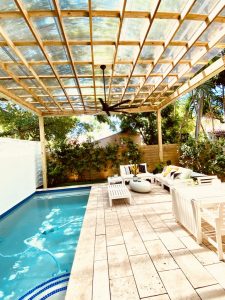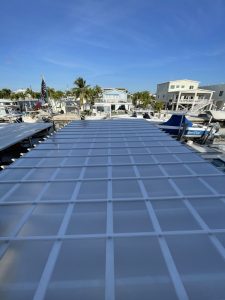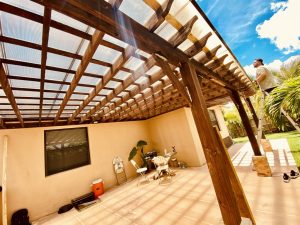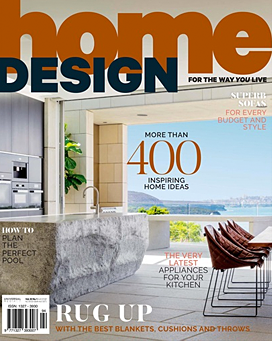 Living in sunny South Florida, we have the privilege of being in great weather year-round, so outdoor activities with family and friends is something Floridians take advantage of as much as they can. Whether it is a nice dip in the pool, grilling in the backyard, just lounging outdoors, or a combination of all three, making sure there is quality shade is key. Because of this, outdoor patio structures, like pergolas have become an essential part of the outdoor living experience. A pergola is an outdoor garden feature consisting of posts, headers, joists, and shade slats/purlins. They are traditionally made out of wood, but they can be made of aluminum and steel as well. A pergola can be a stand-alone structure, or it can serve as an extension of a building. It is meant to provide a shaded seating area protecting you from the harsh effects of direct sunlight.
Living in sunny South Florida, we have the privilege of being in great weather year-round, so outdoor activities with family and friends is something Floridians take advantage of as much as they can. Whether it is a nice dip in the pool, grilling in the backyard, just lounging outdoors, or a combination of all three, making sure there is quality shade is key. Because of this, outdoor patio structures, like pergolas have become an essential part of the outdoor living experience. A pergola is an outdoor garden feature consisting of posts, headers, joists, and shade slats/purlins. They are traditionally made out of wood, but they can be made of aluminum and steel as well. A pergola can be a stand-alone structure, or it can serve as an extension of a building. It is meant to provide a shaded seating area protecting you from the harsh effects of direct sunlight.
Most pergolas in the past would be open or naked with no roof covering, but pergola covers have become vital to fully maximizing your outdoor living space. Let us explore the different types of pergola covers/roofing systems and the advantages and disadvantages of each one.
Visit the upcoming Home Design & Remodeling Show and check out some of the best Pergola companies in South Florida!
Twin-wall and Multi-wall Polycarbonate
Cover Your Pergola’s Apollo (standard twin-wall) and Hercules (premium multi-wall) are made of 8MM polycarbonate panels. These systems provide an excellent upgrade from corrugated panels in strength, durability, and aesthetics while allowing plenty of natural light to come in. It is 100% UV coated, extending the lifespan if your pergola and not allowing discoloration of your outdoor furniture. The dense 8MM thickness helps drop temperatures between 10-20 degrees making it a much more pleasant experience underneath. A disadvantage of the twin-wall system is that installation requires screws penetrating the sheets and with expansion and contraction of the plastic, leaks may occur. The Hercules (premium system) solves that problem by using a standing-seam clip method where no screws are in the sheets. The engineering makes this system 100% watertight. The Hercules system is backed by a 10-year “No Questions Asked” warranty. Both options come in multiple colors and give you options on how much light comes into the area. These products are DIY if you’re handy and can spare an afternoon.
Corrugated Polycarbonate
 Cover Your Pergola’s Apollo (standard twin-wall) and Hercules (premium multi-wall) are made of 8MM polycarbonate panels. These systems provide an excellent upgrade from corrugated panels in strength, durability, and aesthetics while allowing plenty of natural light to come in. It is 100% UV coated, extending the lifespan of your pergola and not allowing discoloration of your outdoor furniture. The dense 8MM thickness helps drop temperatures between 10-20 degrees making it a much more pleasant experience underneath.
Cover Your Pergola’s Apollo (standard twin-wall) and Hercules (premium multi-wall) are made of 8MM polycarbonate panels. These systems provide an excellent upgrade from corrugated panels in strength, durability, and aesthetics while allowing plenty of natural light to come in. It is 100% UV coated, extending the lifespan of your pergola and not allowing discoloration of your outdoor furniture. The dense 8MM thickness helps drop temperatures between 10-20 degrees making it a much more pleasant experience underneath.
A disadvantage of the twin-wall system is that installation requires screws penetrating the sheets and with expansion and contraction of the plastic, leaks may occur. The Hercules (premium system) solves that problem by using a standing-seam clip method where no screws are in the sheets. The engineering makes this system 100% watertight. The Hercules system is backed by a 10-year “No Questions Asked” warranty. Both come in multiple colors and options on how much light comes into the area. These products are DIY if you’re handy and can spare an afternoon. ![]()
![]()
Corrugated Polycarbonate
A go-to for those on a budget is to cover their pergola with corrugated polycarbonate panels. These are typically wavy panels that are available at most big-box stores. The most glaring advantages of this cover option is price, availability, and ease of install. Just go to your local hardware store, grab some panels, screws, and some silicone and you can get these on fairly quickly. The downside of this product is its durability. Over a short amount of time, the thinness of the plastic won’t hold up to the elements and you will experience leaks, cracking, and overall deterioration.
Insulated Aluminum Panels
A very popular option in Miami specifically, is insulated aluminum panels. These are made with aluminum cladding and foam. They range from 3-6 inches thick and give you a complete blockage of sunlight to your outdoor living space. They can also drop your temperatures 10-15 degrees, providing a cooler environment as opposed to your structure being exposed to direct sunlight. Insulated panels also do a good job of hiding electrical wiring if you are installing ceiling fans with your pergola. A few negatives of these insulated panels are that it tends to darken the area it is covering so if your pergola is attached to the house, you are diminishing the amount of natural light coming into your home.
Aluminum Louvers
For the high-end client looking for a more high-tech modern pergola, aluminum louvered pergolas really stand out. Louvered roofs provide you the ability to have an open roof, letting in direct sunlight if desired, completely closed if you’re in the mood for less light, or anywhere in between guiding the sunlight by angling the louvers via remote control. The aluminum material fives it long-lasting durability while requiring little to no maintenance. All these great features certainly come at a cost, with the average cost ranging between $30-$110 per square foot depending on the manufacturer and installer.
Tongue and Groove Roof Decking
![]()
 Tongue and groove (T&G) roof decking is for the client that doesn’t want to deviate from the natural appearance of the wood pergola. This option consists of solid wood or plywood where one side of a plank has a matching slit (groove). A huge advantage of T&G is strength and durability. It also provides a rustic, stylish look to your pergola especially if it matches the wood of your structure. However, like aluminum louvers, this option can be a costly endeavor. The installation lends to be laborious and cumbersome, increasing costs.
Tongue and groove (T&G) roof decking is for the client that doesn’t want to deviate from the natural appearance of the wood pergola. This option consists of solid wood or plywood where one side of a plank has a matching slit (groove). A huge advantage of T&G is strength and durability. It also provides a rustic, stylish look to your pergola especially if it matches the wood of your structure. However, like aluminum louvers, this option can be a costly endeavor. The installation lends to be laborious and cumbersome, increasing costs.
All in all, pergola covers are the unsung heroes of the backyard paradise lifestyle. Enjoying all those awesome amenities isn’t as great if you are under scorching temperatures or even worse, getting rained out and having your backyard bash cut short. The outdoor living market in South Florida is trending in all the right directions and with the influx of newcomers flocking here. We can only hope covering their pergola will be integral to creating those lasting memories in their new homes.
Discover Cover Your Pergola to create the outdoor paradise of your dreams. Check out their website to learn about all the different pergola covers they offer. You can also check them out at the Miami Home Design and Remodeling Show, October 1-3 at the Miami-Dade County Fair & Expo Center.


